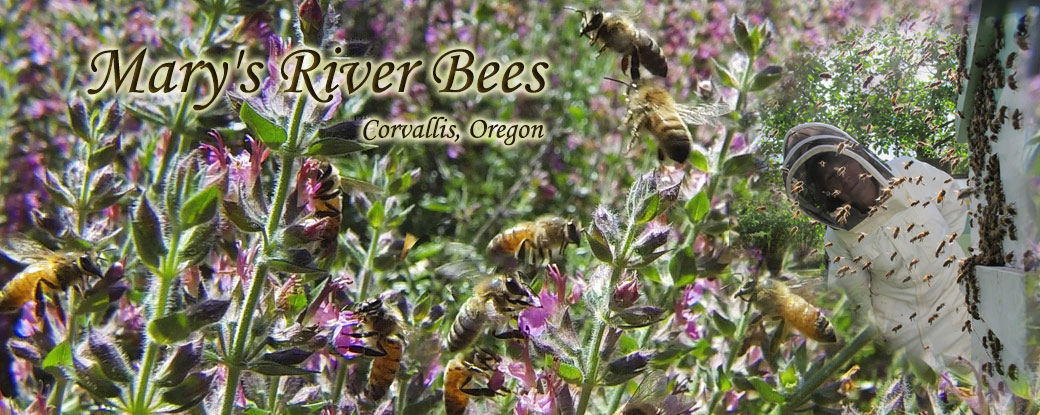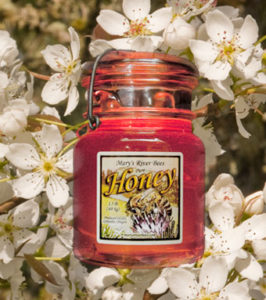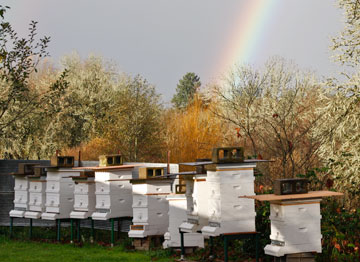
Mary's River Bees honey
We offer pure, raw, unprocessed honey. The strained honey contains traces of pollen, floral aromatics, enzymes and micronutrients that many people believe provide health benefits over traditionally processed ultrafiltered and pasteurized honey.
Wild blackberries grow abundantly along the Mary’s River and provide the major nectar source during early summer. The amber honey produced from blackberries has a mild fruity flavor. Nectars from wild and cultivated plum, cherry, pear, and apple blossoms, as well as from Oregon grape, holly, osoberry, snowberry, hawthorn, locust, madrone, and neighborhood gardens are collected as well.

Crystallization and what to do about it
Honey is a supersaturated solution with approximately 17% water. The hive temperature of about 95 degrees F keeps it liquid, but once removed from this warm environment crystallization can occur as sugars come out of solution. Because raw unfiltered honey contains pollen and other microparticulates, it may crystallize more quickly than traditional commercial honey. How rapidly this occurs is influenced by temperature and nectar source. For example clover or dandelion honey will crystallize more quickly than blackberry honey.
Crystallization has no effect on the quality of honey and it is easily re-liquified by heating gently in a glass jar placed in hot, but not boiling water. Aim for heating the honey to no more than about 110 degrees F. Depending on the size of the jar, this can take a few hours but will preserve enzymes, aromatics, and other trace components.

About us
Our bees live and forage along the Mary’s River near Corvallis in the Willamette Valley. We have been keeping bees for more than ten years on a small acreage and maintain about 20 hives in our apiary. We keep bees because we enjoy watching these amazing insects and to pollinate our fruit trees and garden.